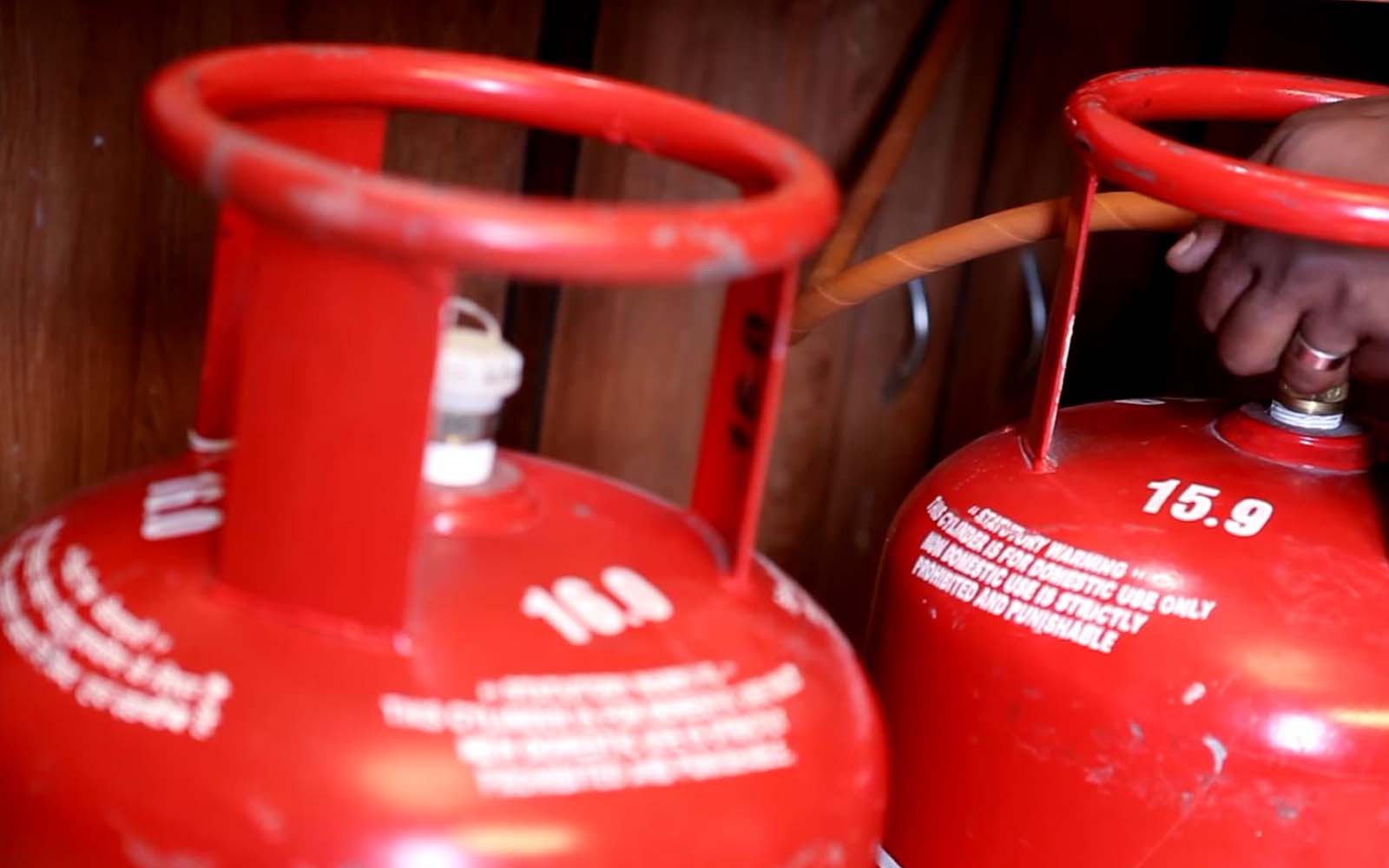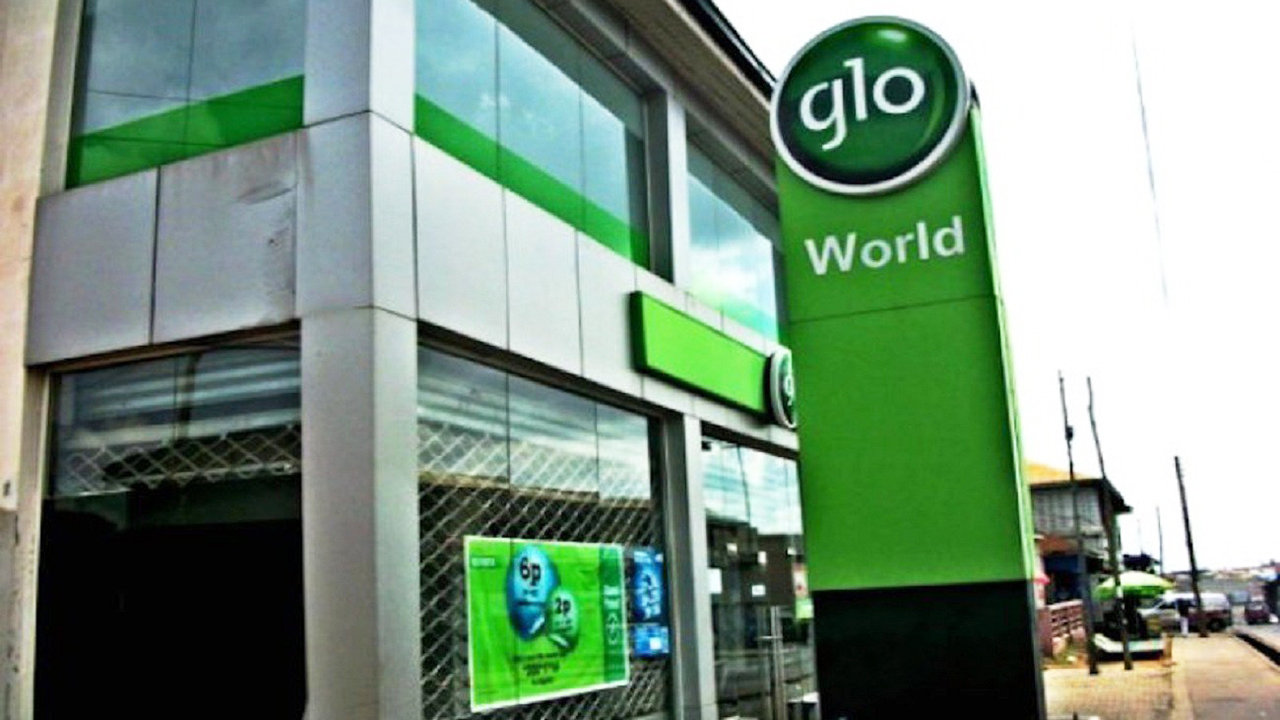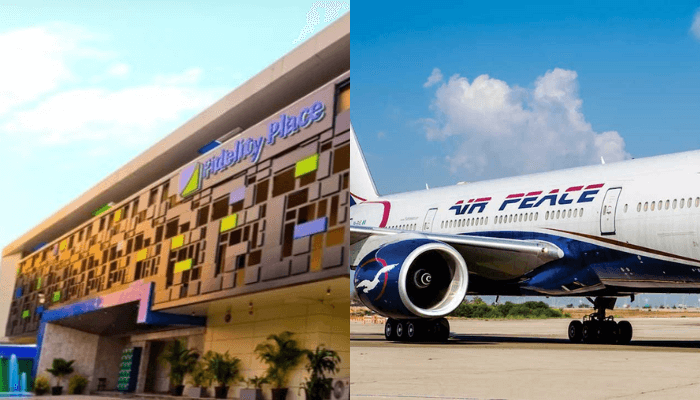Business
Price of Cooking Gas Rises by 20% As Naira Weakens

The price of Liquefied Petroleum Gas, popularly known as cooking gas, sold to marketers in the country has risen by over 20 per cent in the past one month, with consumers paying more for the product.
The naira plunged on November 30 to 500 per dollar at the parallel market, its lowest level in more than three years, from around N462/$1 at the start of the month. It traded at 476 against the greenback on Tuesday.
Our correspondent gathered that terminal operators and importers increased the price of 20 metric tonnes of LPG to N5.3m on Monday from an average of N4.4m a month ago.
A gas plant in Lagos visited by our correspondent refilled a 12.5kg cylinder for LPG for N4,000 on Tuesday, up from N3,200 in November. Our correspondent gathered that the plant had refilled a 12.5kg cylinder for N3,500 on Monday.
Some of the retail shops visited by our correspondent put the price for refilling a 12.5kg cylinder at between N4,000 and N4,500 on Tuesday.
Marketers said the price of cooking gas had continued to increase in recent months as the depreciation of the naira against the dollar and increased global demand pushed up the cost of importing the product into the country amid inadequate local supply.
Nigeria, which is home to the largest natural gas reserves in Africa and the ninth largest in the world, imports a chunk of the cooking gas being consumed in the country.
Terminal operators sold 20 tonnes of LPG at between N5.2m and N5.3m on Tuesday, up from N4.9 to N5m at the start of December and N4.25m to N4.45m on November 20, according to LPG in Nigeria, an advocacy organisation championing the use of LPG in the country.
“International prices continue to go up, which is a major factor in our local LPG pricing. LPG price just hit $400 per MT for the first time since February 2019. We expect that prices will ride the winter demand, then begin a steep fall,” it said.
The Executive Secretary/Chief Executive Officer, Nigerian Association of LPG Marketers, Mr Bassey Essien, told our correspondent that the association had noticed the gradual increase in cooking gas price in recent months.
According to Essien, about 35 per cent of the LPG consumed in the country is from domestic supply while 65 per cent is imported.
He said many privately-owed terminals had to depend on importation because they could not get supply from the Nigeria LNG Limited.
“In the process of importing LPG, the CBN does not have any particular foreign exchange window for LPG importers like it has for other sectors. So, they find their own forex whatever way they can. At a point, the naira was 500 per dollar,” he said.
Essien said another factor responsible for the price hike was the increased global demand for gas during winter.
“Since a greater chunk of what we consume is imported, we have to face the problem of foreign exchange dynamics. It is not something we are happy about,” he added.
The NLNG said in September that its board of directors had approved an increase in its dedicated volume of LPG supplied to the domestic market from 350,000 metric tonnes per annum to 450,000 mtpa.
The Punch
Business
FirstBank Partners Verve to Issue Free Debit Cards in Nationwide Promo

First Bank of Nigeria Limited (FirstBank), Nigeria’s premier and leading financial inclusion services provider, has announced the launch of the Verve Flash Promo, a special initiative rewarding customers with free Verve cards.
The campaign, which commenced on 6 October 2025, and will run until 30 January 2026, is exclusively targeted at FirstBank customers whose ATM cards have expired.
The free cards will be issued daily to 131 customers on a first-come, first-served basis across the Bank’s branches, nationwide. FirstBank’s unwavering commitment to convenience, accessibility, and customer satisfaction.
Speaking on the rewards to FirstBank customers, Chuma Ezirim, the Group Executive, e-Business and Retail Products at FirstBank, said: “The Verve Flash Promo is not just about rewarding customers with free verve debit cards; it is about celebrating our legacy of 131 years of trust, resilience, and innovation in the Nigerian financial services industry. At FirstBank, we remain committed to providing customer-centric solutions that enable secure, seamless, and convenient payment experiences. Partnering with Verve International on these initiatives, including the Verve Good Life promo, underscores our shared vision of deepening financial inclusion while rewarding our loyal customers for their continuous patronage.”
Also commenting, Vincent Ogbunude, Managing Director, Verve International, noted:
“Through strategic collaborations like this with FirstBank, we continue to demonstrate Verve’s commitment to enhancing access to seamless payment solutions for every Nigerian. The Verve Flash Promo not only rewards loyal customers but also reinforces our vision of making everyday transactions more rewarding, secure, and convenient. As we extend the Good Life Promo, we remain steadfast in our goal of deepening financial inclusion while delivering real value to Verve cardholders across the country.”
Meanwhile, the ongoing Verve Good Life promo, designed to reward Verve debit card holders for using their cards at specific merchant points, has been extended to 30 November 2025.
During the period, Verve Card holders enjoy 10% cashback at The Place Restaurant, Quickteller, Buypower, Filmhouse, AlliExpress, Addide Supermarkets, and Chowdeck app every Thursday to Sunday.
Verve cardholders can now enjoy a 10% cashback on the Google Play Store any day of the week throughout the Good Life Promo, which runs until 30 November 2025. Moreso, every transaction made with a Verve card whether on ATMs, POS terminals, or online platforms automatically earns customers a chance to win up to ₦1,000,000.
Business
Glo Enhances Data Bundles, Offers More Data at No Extra Cost

Nigeria’s leading telecommunications company, Globacom, has announced enhancement of its data bundles to give subscribers more data volume at the same affordable prices.
The upgrade reinforces the company’s commitment to providing superior value and exceptional customer satisfaction.
The upgraded Glo Data Bundles are enhanced versions of the existing daily, weekly, and monthly plans, giving subscribers more data at no additional cost.
These improvements offer users greater freedom and convenience to enjoy their favourite online activities from streaming and gaming to social media, video calls, and more.
For daily users, the ₦100 plan has been upgraded from 105MB to 125MB, giving light internet users even more data to browse, chat, and stream short videos conveniently.
The weekly bundles have also received notable boosts, such as the ₦1,500 plan, which now offers 6GB instead of 5.9GB, enabling subscribers to stay connected longer.
Heavy data consumers will also enjoy remarkable value on the monthly plans. The ₦2,000 bundle now gives 6.25GB, while the ₦10,000 package has been enhanced from 38GB to 42GB, allowing users to do more from video streaming and large file downloads to remote work and virtual meetings.
Students are not left out, as the Campus Booster Plan has been upgraded with higher data allowances, ensuring seamless access to academic resources and social networks while on campus.
Globacom noted that the revised bundles are available to all Glo customers prepaid, postpaid, and hybrid and can be activated by dialing *312#, using the Glo Café app (available on Android and iOS), or visiting hsi.glo.com.
The company added that subscribers can use, share, or gift data through *312# or the Glo Café app. Customers will also continue to receive data usage alerts at 75% and 100% consumption levels to help monitor usage effectively.
Unused data is automatically rolled over upon renewal before expiry or when a new plan is purchased within the grace period (ranging from one to seven days, depending on the plan).
Globacom reaffirmed its commitment to empowering Nigerians with reliable and affordable data access, urging customers to take advantage of the revised data bundles that combine affordability, quality, and more browsing power ensuring every Glo subscriber enjoys more data without paying more.
Business
Maiden Flight to Heathrow Airport: Fidelity Bank Hails Air Peace

Fidelity Bank Plc has congratulated Air Peace on the successful launch of its maiden direct flight from Lagos to London Heathrow, describing the milestone as a significant achievement for Nigeria’s aviation sector and a testament to the power of indigenous partnerships.
The commendation was delivered by Dr. Nneka Onyeali-Ikpe, managing director of Fidelity Bank, during a special event held in Lagos to celebrate the airline’s expansion into the European market.
“This is not just a win for Air Peace, but a win for Nigeria,” Onyeali-Ikpe said. “It reflects the strength of home-grown businesses and the impact of strategic financial support in enabling national champions to thrive on the global stage.”
Nigeria CommunicationsWeek reports that Fidelity Bank has played a pivotal role in Air Peace’s growth, providing early financial backing and advisory services that helped the airline become the largest carrier in West Africa. The bank continues to support Air Peace through payment processing and other financial services
The launch of the London route marks a new chapter for Air Peace, which now joins a select group of African airlines operating direct flights to Heathrow.
The development is expected to boost tourism, trade, and connectivity between Nigeria and the United Kingdom.
Speaking at the event, Allen Onyema, Chairman of Air Peace, expressed gratitude to Fidelity Bank for its unwavering support and reaffirmed the airline’s commitment to excellence and service.
“This partnership has been instrumental in our journey,” Onyema said. “We are proud to fly the Nigerian flag across international skies.”
Industry stakeholders present at the event praised the collaboration between the two companies as a model for sustainable business growth and national development.






